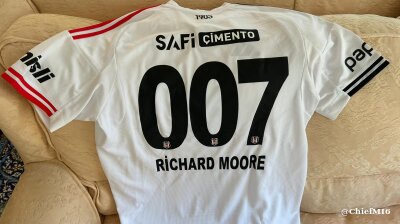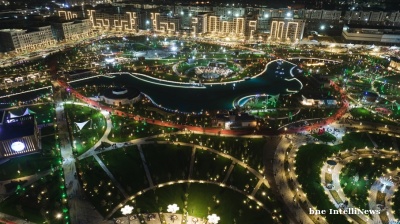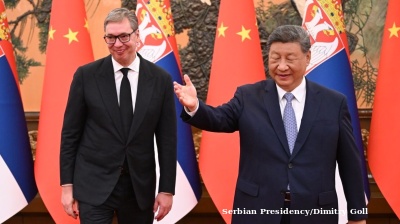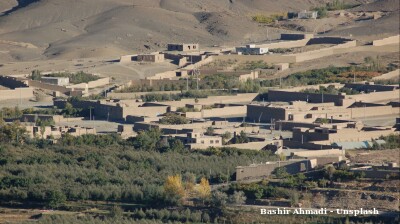Ukrainian President Volodymyr Zelenskiy is set to attend a Nato summit in The Hague next week after all

Ukrainian President Volodymyr Zelenskiy is set to attend a Nato summit in The Hague next week after all, the European Council confirmed on June 20, amid uncertainty over the US role in transatlantic security commitments.
Confusion has reigned over the question of Zelenskiy participation in recent weeks. Ukraine has received an official invitation to the annual summit, the Lithuanian Foreign Minister Kęstutis Budris said last week.
"There is no such issue on Nato's agenda, and we have not heard any signal about expecting an invitation to membership, including from the Ukrainians themselves," Budris said, stressing that one should not expect "breakthrough decisions".
European Commission President Ursula von der Leyen and Nato Secretary-General Mark Rutte confirmed they are scheduled to meet Zelenskiy on June 24 at the summit, according to a schedule released by the European Council.
However, that uncertainty remains and Zelenskiy’s attendance was thrown into doubt again over the weekend, after the organisers announced that the Ukraine session at the summit would be cancelled due to the “changed scheduled of meetings due to US President Donald Trump,” Politico reports.
Zelenskiy has been vacillating over attending, reluctant to show up unless there was a firm commitment by the Trump administration for a meeting between the two presidents. The Guardian reported on June 17 that Kyiv remained unsure whether Trump would participate meaningfully in the summit discussions and if is no Trump-Zelenskiy meeting on the agenda, the Ukrainian president may choose to stay away after all.
The agenda has been cut to two events only: a welcome dinner at the castle of the Dutch royal family and one Nato members where spending is set to dominate the agenda. Several other events, including no meeting of the Nato Council on Ukraine, have now been cut from the agenda. The Trump administration was not interested in increasing attention to the war, which Trump has not been able to resolve as he promised during last year's presidential campaign, according to reports.
Zelenskiy recently attended the failed G7 summit in Canada where a meeting between him and Trump also failed to happen after Trump cut short his visit and left after only one day.
Zelenskiy has been pushing very hard for meaningful Western security guarantees, preferably Nato membership, as part of his “victory plan” that he touted in Western capitals at the end of last year. Ukraine’s western allies have remained very reluctant to agree and the lack of a Western commitment to security deals is what caused the 2022 Istanbul peace deal to collapse.
Since then Secretary of State Marco Rubio has said explicitly that Nato membership is off the table as part of the ceasefire talks that kicked off in Riyadh on February 18. Trump appears to be miffed after Zelenskiy rejected his ceasefire “final offer” in April and came back with a counteroffer that started and ended with Russia accepting an unconditional immediate ceasefire, back by Ukraine’s European allies. Since then, as bne IntelliNews opined, the ceasefire talks are dead in water.
Even if Trump turns up, the summit, scheduled for 24-25 June, will already happen in an unusually brief format, with just one meeting lasting two and a half hours. The programme has been adapted to suit the communication style of Trump, who openly dislikes lengthy diplomatic meetings, The Times reports. Summit is going to be as short as possible and focused entirely on one main topic – increasing defence spending by member countries at America’s insistence. Trump is one of 32 leaders from the Western defensive alliance who are coming, along with the heads of more than a dozen partner countries.
Scaled down participation
Ukraine’s participation has been steadily scaled down at the regular Nato summits. He caused considerable embarrassment at the Vilnius Nato summit in 2023 by aggressively demanding accelerated Nato membership for Ukraine
At the Washington Nato summit in 2024 hosted by the Biden administration Zelenskiy was told explicitly not to bring the question of Ukraine’ Nato membership up at all, according to reports, as no one wanted to address the issue. Instead, the Nato members watered down their commitment to the empty rhetorical phrase of “Ukraine’s irreversible path” to eventual Nato membership, without committing themselves to anything concrete or a timeline.
Now with the Hague Nato summit it has not been clear until this weekend if Ukraine will be invited at all. Even then, officials have already said that mention of the Ukraine conflict will be included in the final communiqué by the members. Condemnation of Russia was already excluded from the G7 meeting and no joint communiqué was issued, thanks to an argument with the White House over what it should contain.
The draft communiqué for this summit will be no longer than one A4 page and contain just five paragraphs unlike last year’s 5,000 word document. It will largely avoid mentioning Ukraine, concentrating instead on boosting defence spending, according to reports on the preparatory work. And like the G7 meeting in Canada, according to the summit programme, Trump will not hold the conventional joint press conference with Nato Secretary General Mark Rutte.
With US military aid having already fallen to nothing since 2024, Europe’s Nato members have already taken over the lion’s share of funding Kyiv’s military efforts. Von der Leyen launched the €150bn European ReArm in March, but it is unclear if the so-called Coalition of the Willing can supply Ukraine with all it needs to prevent a military defeat at Russia’s hands.
During the recent ceasefire negotiations in Istanbul on June 3, the head of the delegation suggested that Russia could occupy up to eight new regions in addition to the five it already holds if Kyiv didn’t acquiesce to the Kremlin’s maximalist demands.
The US is demanding Nato members raise their spending from the current 2% of GDP to at least 3.5% by 2032, along with an extra 1.5% for securing infrastructure, borders, and other defence-related initiatives, including citizen preparedness for crises.
Unlike past statements, the draft communiqué does not reference last year's proposal to provide $40bn in military aid to Kyiv annually. The draft does label Russia as a "threat" to Euro-Atlantic security but refrains from designating it as an "aggressor" for waging a war in Ukraine – language the White House has shown itself particularly adverse to.
In the last days, the White House has removed all references to the Bucharest Memorandum signed in 2008 from its official website, where then president George W Bush promised Ukraine’s “eventual” membership in Nato (video), over objections from former German Chancellor Angela Merkle and French president Emmanuel Hollande.
Ukraine’s support amongst his European allies remains firm, but increasingly irrelevant as EU leaders have failed to sway Trump. Since taking office in January, the Trump administration has failed to commit to any new funding, military support or sanctions whatsoever.
Features

BEYOND THE BOSPORUS: Spymaster tells Istanbul audience MI6 forged relationship with Syria’s HTS in 2023
Over in New York, country’s president, ex-Al Qaeda man al-Sharaa, is interviewed on-stage by a former CIA chief.

Emerging market Tiger Cities power global growth prospects
Cities across the developing world are set to be among the fastest-growing urban economies in the next quarter century, according to Oxford Economics’ Global Cities Index 2025.

Hungary's Fidesz on the defensive after paedophile allegations against high-level government officials
Claims senior politicians could have shielded the director of Budapest-based juvenile correctional institution Szolo Street have the potential to become a "Hungarian Epstein case".

EU’s influence declines in its neighbourhood as China and Russia gain ground
Chinese presence growing in Western Balkans, while Russia makes gains in Turkey, shows new index developed by wiiw, Bertelsmann Stiftung and ECIPE.
_-_PD_1758849098.jpg)

_1759074798.jpeg)
